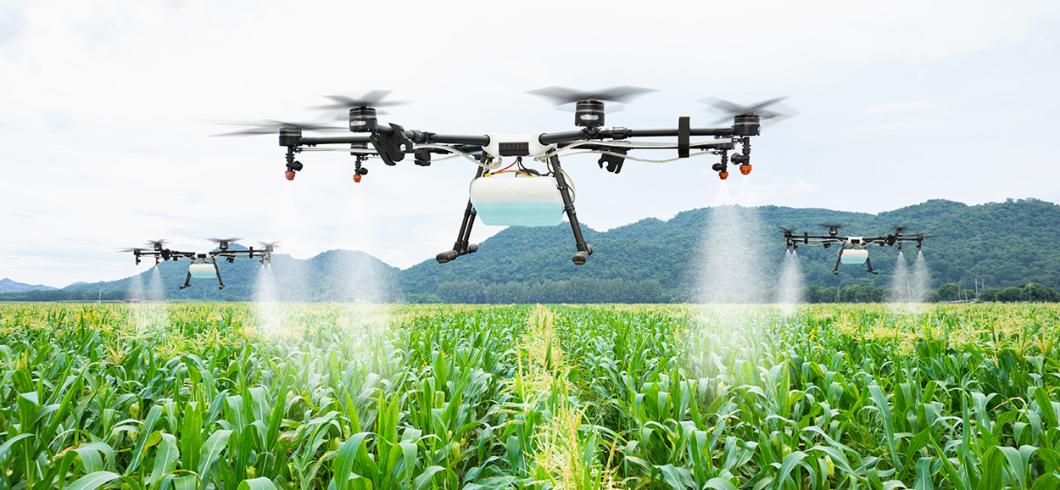AI in Agriculture: Unlocking the Power of Data Analytics for Informed Decision-Making
Agriculture, the backbone of human civilization, faces unprecedented challenges in the 21st century. From climate change and unpredictable weather patterns to rising populations and increasing demand for food, farmers are tasked with producing more with fewer resources.

The advent of artificial intelligence (AI) offers a beacon of hope for the agricultural sector. AI-powered data analytics has the potential to revolutionize farming practices, enabling farmers to make informed decisions, optimize resource allocation, and increase productivity while preserving the environment.
AI-Powered Data Analytics: A Game-Changer
The Role Of Data In Agriculture
Data is the lifeblood of modern agriculture. Farmers today have access to a wealth of data from various sources, including:
- Sensors: Soil moisture sensors, weather stations, and crop health monitors provide real-time data on field conditions.
- Drones: Equipped with cameras and sensors, drones collect aerial imagery and data on crop health, pest infestation, and irrigation needs.
- Satellite Imagery: Satellite images offer valuable insights into crop growth, soil conditions, and water stress.
Data Analytics Techniques
AI-powered data analytics utilizes sophisticated algorithms and techniques to extract meaningful insights from the vast amount of agricultural data. These techniques include:
- Machine Learning Algorithms: Machine learning algorithms, such as decision trees and random forests, are used for predictive analytics, enabling farmers to forecast crop yields, pest outbreaks, and market trends.
- Big Data Analytics: Big data analytics platforms process and analyze large volumes of data to identify patterns and correlations that would be difficult to detect manually.
- Artificial Neural Networks: Artificial neural networks are particularly effective in image recognition tasks, such as identifying pests and diseases in crops.
Benefits Of AI-Powered Data Analytics

The integration of AI-powered data analytics into agricultural practices offers a multitude of benefits, including:
- Improved Crop Yield and Quality: AI algorithms can optimize planting dates, irrigation schedules, and fertilizer application, resulting in higher yields and better crop quality.
- Reduced Costs and Increased Efficiency: AI-driven automation and precision agriculture techniques minimize resource wastage, reduce labor costs, and improve overall farm efficiency.
- Enhanced Sustainability and Environmental Protection: AI can help farmers adopt sustainable practices, such as precision irrigation and targeted pesticide application, reducing environmental impact and preserving natural resources.
- Precision Agriculture and Targeted Interventions: AI enables farmers to implement precision agriculture practices, tailoring inputs and interventions to specific areas of the field, optimizing resource allocation and minimizing environmental impact.
Case Studies: AI Success Stories In Agriculture
Numerous real-world examples showcase the transformative impact of AI in agriculture:
Example 1: AI-driven Irrigation Systems
AI-powered irrigation systems use sensors to monitor soil moisture levels in real-time and adjust irrigation schedules accordingly. This approach has led to significant water savings and increased crop yields.
Example 2: AI-powered Pest And Disease Detection
AI algorithms can analyze images captured by drones or satellites to identify pests and diseases in crops early on. This enables farmers to take timely action, minimizing crop damage and reducing the need for chemical pesticides.
Example 3: AI-enabled Yield Prediction
AI models can analyze historical data and weather patterns to predict crop yields and market prices. This information helps farmers make informed decisions on planting, harvesting, and marketing, maximizing profits and minimizing risks.
Challenges And Future Prospects
Despite the immense potential of AI in agriculture, several challenges need to be addressed:
- Data Privacy and Security Concerns: The collection and storage of vast amounts of agricultural data raise concerns about data privacy and security, requiring robust measures to protect sensitive information.
- Need for Skilled Workforce and Infrastructure: The adoption of AI in agriculture requires a skilled workforce capable of operating and maintaining AI systems. Additionally, reliable internet connectivity and infrastructure are essential for effective data transmission and analysis.
- Ethical Considerations and Responsible AI Practices: The use of AI in agriculture raises ethical considerations, such as the potential displacement of human labor and the responsible use of AI technology to ensure fairness and equity.
Despite these challenges, the future of AI in agriculture is promising. Ongoing advancements in AI technology, coupled with increasing data availability and improved infrastructure, will further enhance the capabilities of AI-powered data analytics in agriculture.
AI-powered data analytics has the potential to revolutionize agriculture, enabling farmers to make informed decisions, optimize resource allocation, and increase productivity while preserving the environment. By embracing AI technology, stakeholders in the agricultural sector can unlock the power of data and transform the way food is produced, ensuring a sustainable and prosperous future for agriculture.
YesNo

Leave a Reply